Category: 200 Words
Stories that aim to convey a service experience in 200 words or less
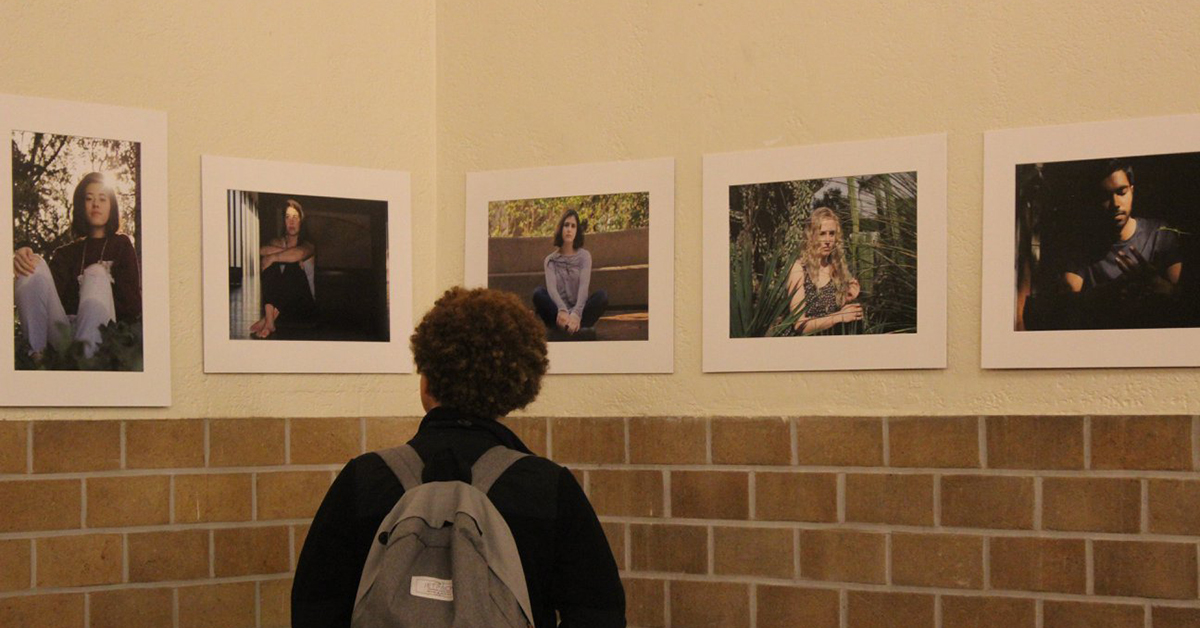
Seeing the invisible
By Jenn Ampey, ’19 (International Relations)The last strand of decorative lights fell into place as the clock struck 7:00 pm. After more than nine months of hard work, it was time to open the doors to “Kaleidoscope: Mental Health Coming into Focus.”
As students filed in, I couldn’t help but stare in awe at the number of students that had come to immerse themselves in the mental health experiences of their peers through art. Many visiting students stayed for upwards of an hour. As co-president of Stanford Mental Health Outreach, I have long had the privilege of engaging with students and faculty across campus on mental health issues. However, the art showcase was a new venture. It involved more than 60 non-members, including student artists and the students photographed. Without them, SMHO would not have been able to host such a moving gallery.

We need to continue to have provocative interactions around mental health issues. Doing so with different media is one more way to reach out to our peers and offer our experiences in an effort to destigmatize conversations that could make an enduring difference in someone’s life.
As the event drew to a close, surrounded by artistic expressions of sometimes indescribable human experiences, my co-president and I found comfort in the realization that we helped build bridges—bridges that we hope will be crossed again and again at Stanford going forward.
Jenn was a Peer Advisor at the Haas Center in 2017-18, in addition to her work with SMHO.
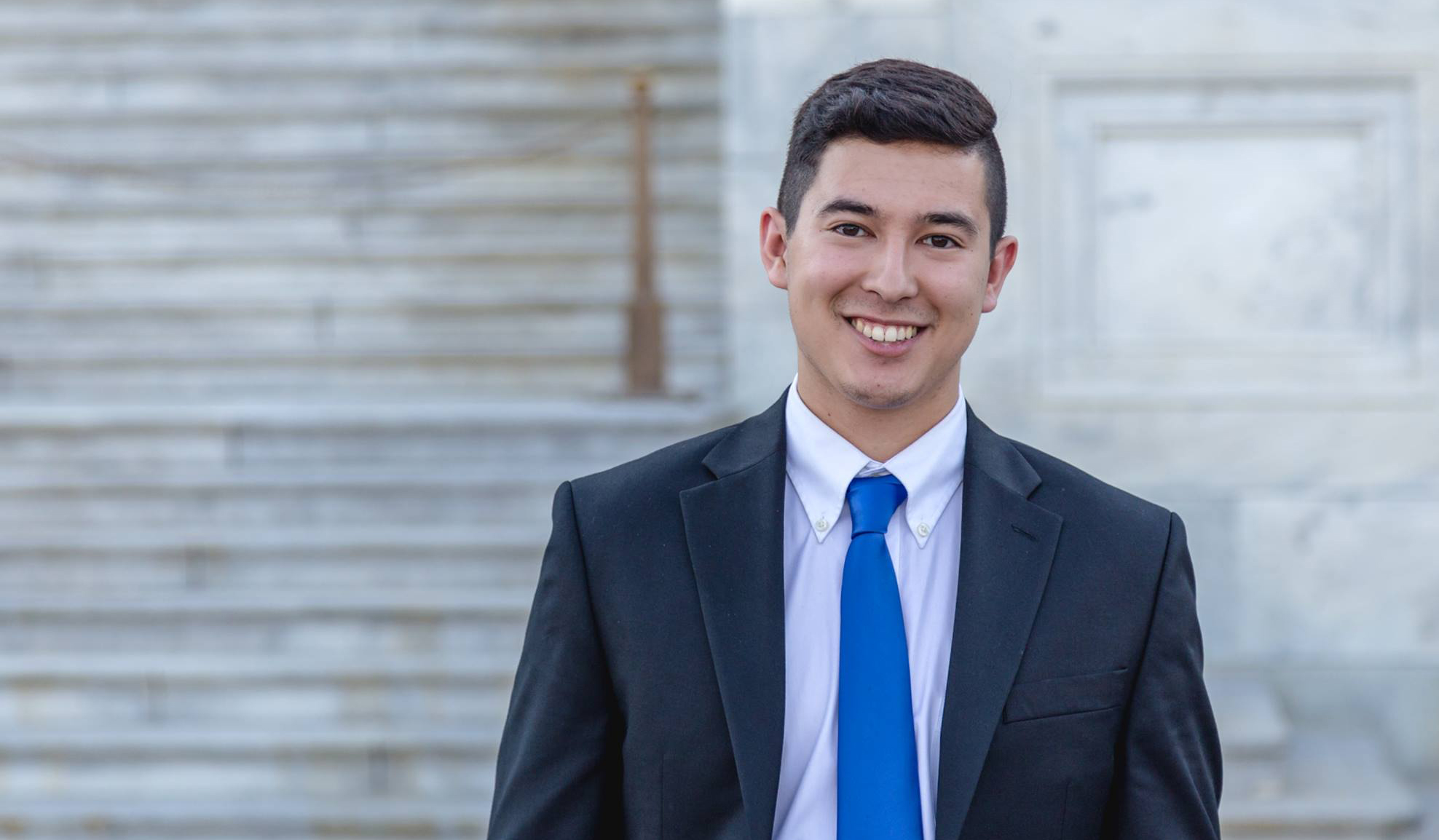
Know history, know self, know mental health
By Joriene Mercado, ’18 (Human Biology, Education)
I was back in a high school classroom in my hometown of Daly City, California, to facilitate a workshop for nine students about Filipino history, mental health, and ethnic identity. As I was leaving, one of the students said that during this workshop they learned about history in a way that they hadn’t in an entire semester of their history class.
Throughout high school, I never had the opportunity to learn about or discuss Filipino history; I first learned about it through a student-initiated course at Stanford. And it wasn’t until college, once I began to struggle with my mental health, that I took the time to even consider mental health. When I saw how the two intersected and influenced my ethnic identity development, I felt I would’ve been much better off if I had learned about mental health and my Filipino history in high school. However, I’ve been privileged to attend Stanford, and I hope to help high school students in my community by sharing what I’ve been fortunate to learn about.
In the future, I want to continue teaching our youth and ensuring that they can see themselves in what they’re learning. Knowing one’s ethnic history is critical for positive and complete identity development, especially during high school.
“Know history, know self. No history, no self.”
Joriene is a member of the 2017-18 cohort of the Public Service Honor Society.
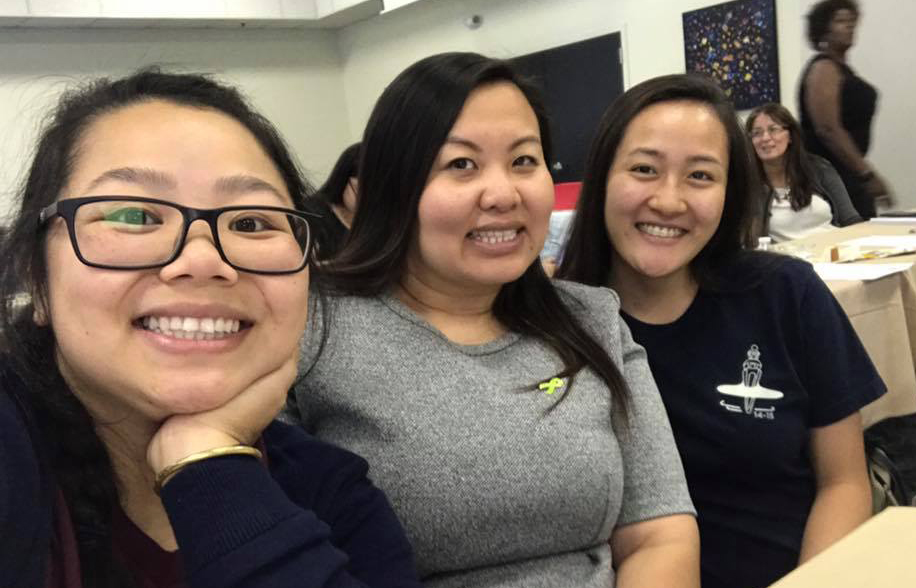
Learning about my communities
By Vanuyen Pham, ’18 (History)
“Why is sexual and reproductive health important to you?” I asked a student.
I’m back in high school for the day. As part of my summer internship with Southeast Asia Resource Action Center (SEARAC), I drove down from our offices in Sacramento to interview Southeast Asian American youth in Oakland about their access to sexual and reproductive health services.
The students described the difficulty they face around accessing services and products because of cost, on top of the cultural stereotyping that happens in neighborhoods where some of them live. The students were far more knowledgeable about the complexity of sexual and gender identity than I was when I was their age, and understood how fortunate they were that they went to a school with a clinic that provided what they needed.
This was just part of my summer at SEARAC, where I had an amazing and fulfilling experience through the Empowering Asian/Asian American Communities Fellowship. I outreached to congressional offices, followed the latest updates on the federal efforts to repeal the Affordable Care Act, contributed to reports on the impact of the ACA and inter-generational trauma on Southeast Asian American communities, and participated in legislative visits to the State Capitol. Through my experiences, I gained a better understanding of the power of community organizing and policy change and am passionate about pursuing postgrad opportunities in public health and public policy to advocate for my communities.
Vanuyen is a member of the 2017-18 cohort of the Public Service Honor Society.
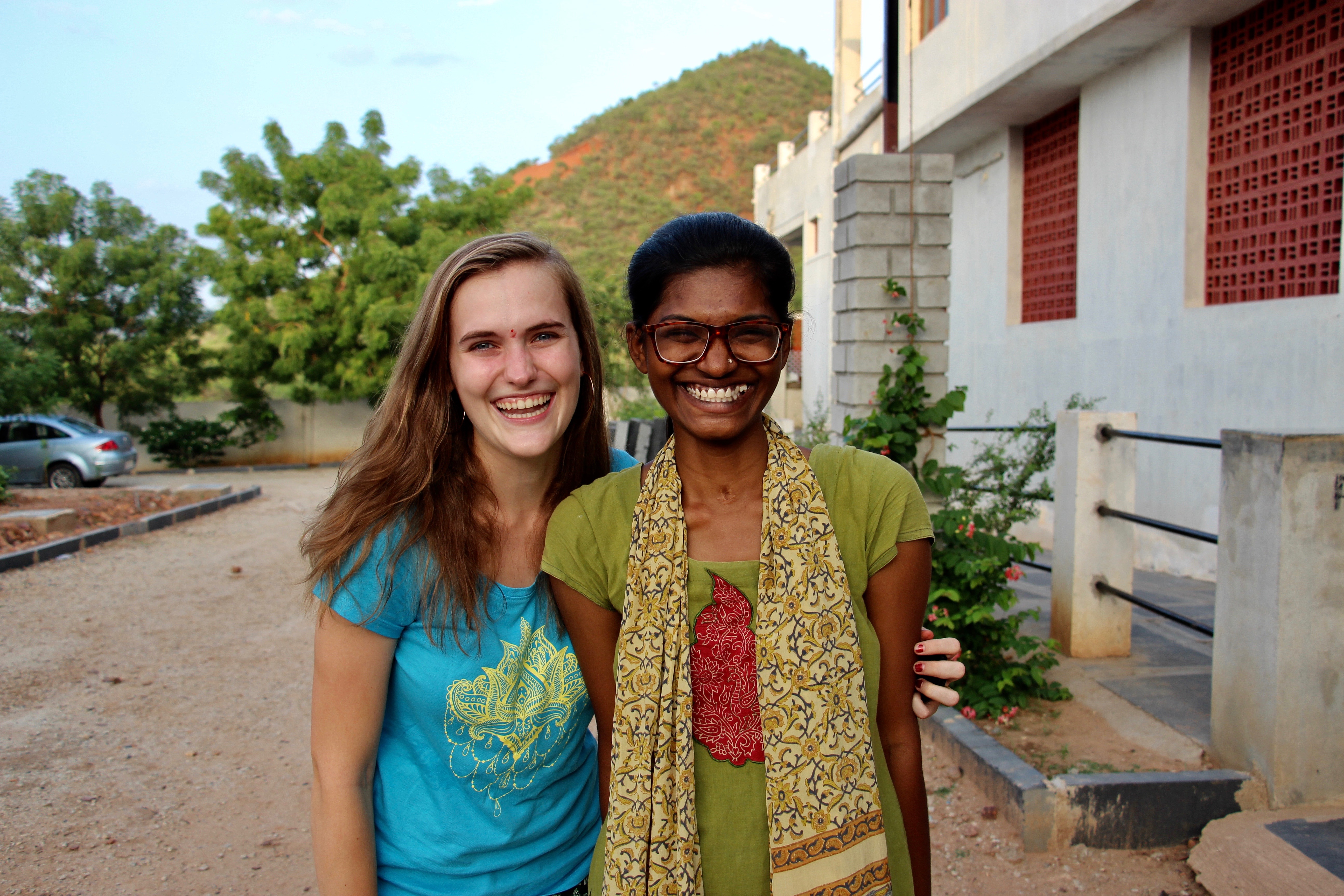
Chemistry with Kusuma
By Elizabeth Wallace, ’18 (English, French Literature)
The last place I expected to use my evolving knowledge of organic chemistry was at an orphanage in rural India. Yet there I was, cross-legged on the floor of the Aarti Home dining hall trying to recall the difference between an alkene and an alkyne with a young woman named Kusuma.
“Akka, sister, it goes like this,” she tells me, bending over to draw the reaction arrows on my paper.
Kusuma was in her first organic chemistry class, but her dream is to go on to get her PhD. Her spunk and spirit inspire me. She is witty, sharp, and not afraid to speak her mind.
Every girl I met at the Aarti Home in Kadapa, India, was as dedicated and determined as Kusuma. Aarti Home was set up in 1992 by the incredible vision of Sandhya Puchalapalli, who determined that girls in her community should have a safe place to live and be educated, even if their families could not afford to provide it.
I came to Aarti in the summer of 2017, a Stanford intern eager to learn more about the organization and help in anyway I could. What I found was a center of female empowerment, a cradle of love and support where brilliant and strong women are molded. Aarti gave me hope that the future is undoubtedly female and because of that, indisputably bright.
Elizabeth is part of the 2017-18 cohort of the Public Service Honor Society, a leadership program for seniors run by the Haas Center.
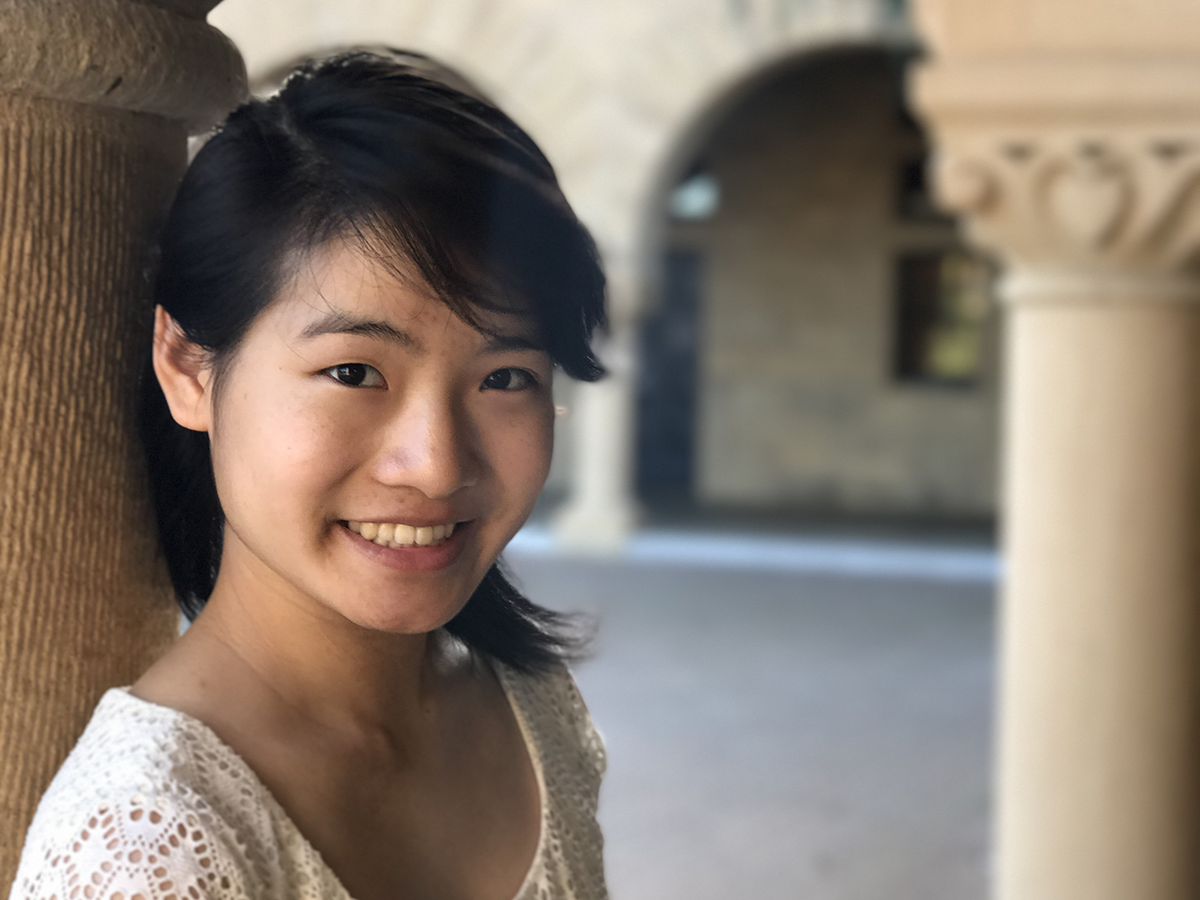
Heart in service
By Melodyanne Cheng, ’18 (Comparative Studies in Race and Ethnicity and Biology), MA ’19 (Comparative Medicine)
“I carry my community on my back,” said the man who stood tall at the front of the East Palo Alto City Council meeting room. He was dressed in vivid ink tattoos and wringing a beanie between his hands. He proclaimed himself an elementary school graduate, and the observing crowd fell palpably silent. When the city council questioned his qualifications, revealing his lack of skill and experience for the position in comparison with the real estate lawyer candidate and the previous board member running for re-election, the man proudly defended his right for candidacy on the Rent Stabilization Board as a proud product of East Palo Alto. “I may not have training,” he boomed, “but I have heart.”
As a Community Health Advocacy Fellow, I was an outsider observing the rent control committee elections, hoping to understand some of the political events that have great impact upon the overall health of the community I served. Unlivable conditions, lack of accessible housing, rocketing rent prices, and gentrification are negatively affecting the East Palo Alto community and the health of the patients I serve.
The man’s words echo in my mind as I volunteer at Ravenswood Family Health Clinic, which serves a patient community that is majority low-income. It’s been my absolute joy to get to know patients as they share precious pieces of their life stories with me. As I interact with patients as a women’s health navigator, I see patient wellness impacted by so many different upstream social determinants of health, such as zoning policies, housing affordability, and housing conditions. I’m honored to serve these amazing people in whatever capacity I can, now as a patient advocate and in the future as a community health-focused physician.
Melodyanne is a member of the 2017-18 cohort of the Public Service Honor Society.
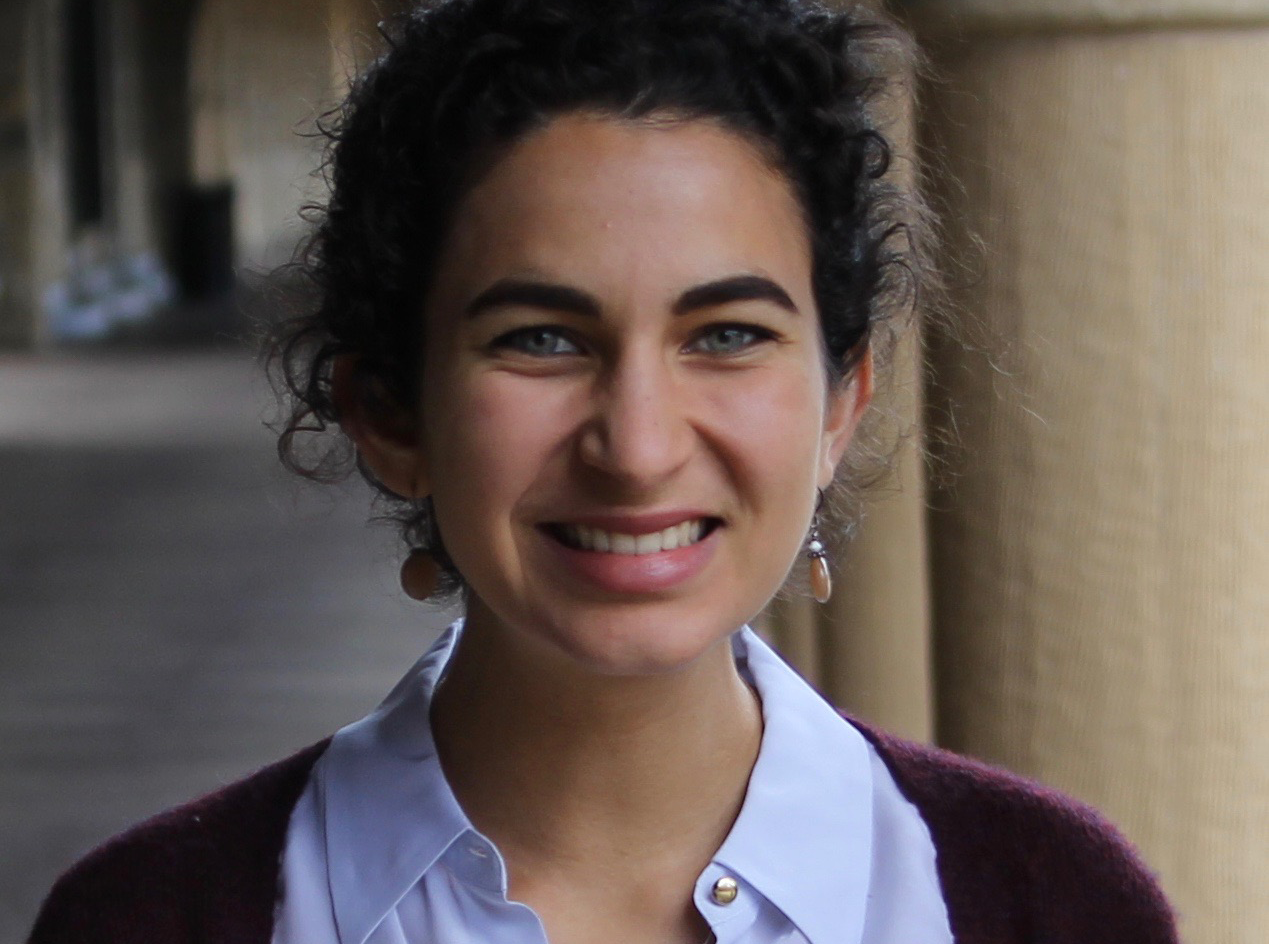
Above all, persistence
By Ryanne Bamieh, ’18 (History)It was a Thursday morning when we got the call. My partner and I had been investigating the case for the past two weeks, and we still didn’t have anything useable. Our client was accused of a hit-and-run, just in front of a small apartment building in a Brooklyn neighborhood. We’d been trying to reach the owner of the apartment building for the past two weeks, hoping that we’d be able to obtain video footage of the crash. Our quest had taken us to a hospital in the Bronx, to a corporate building in Manhattan, and on many trips from our office in downtown Brooklyn to the scene of the alleged crime, as we tried to track down the video.

Eventually, someone had passed our phone number to the building super, who had gotten permission from his boss to call us and give us access to the footage. It was only when we got back to our office that we were able to watch the video and confirm exactly what our client told us: that another man had been driving the car.
As an intern at Brooklyn Defender Services (BDS), I was able to learn about my dream career while also helping to defend our clients—indigent men and women of Brooklyn who had been accused of a variety of crimes. I interviewed witnesses, photographed scenes, and became very familiar with standard video surveillance protocol. Through it all, I learned that the most important quality of an investigator was persistence. It could be endlessly frustrating to follow up promising leads, only to discover that they were dead ends. Yet, the times when our work paid off made all the fruitless calls and long trips around the city worth it.
I know the path to becoming a public defender will be difficult, but if I’ve learned anything from my time at BDS, it’s that I’m persistent, and persistence can carry me along even the most difficult paths.
Ryanne is part of the 2017-18 cohort of the Public Service Honor Society, a leadership program for seniors run by the Haas Center. Her experience with BDS was through a Cardinal Quarter summer fellowship.
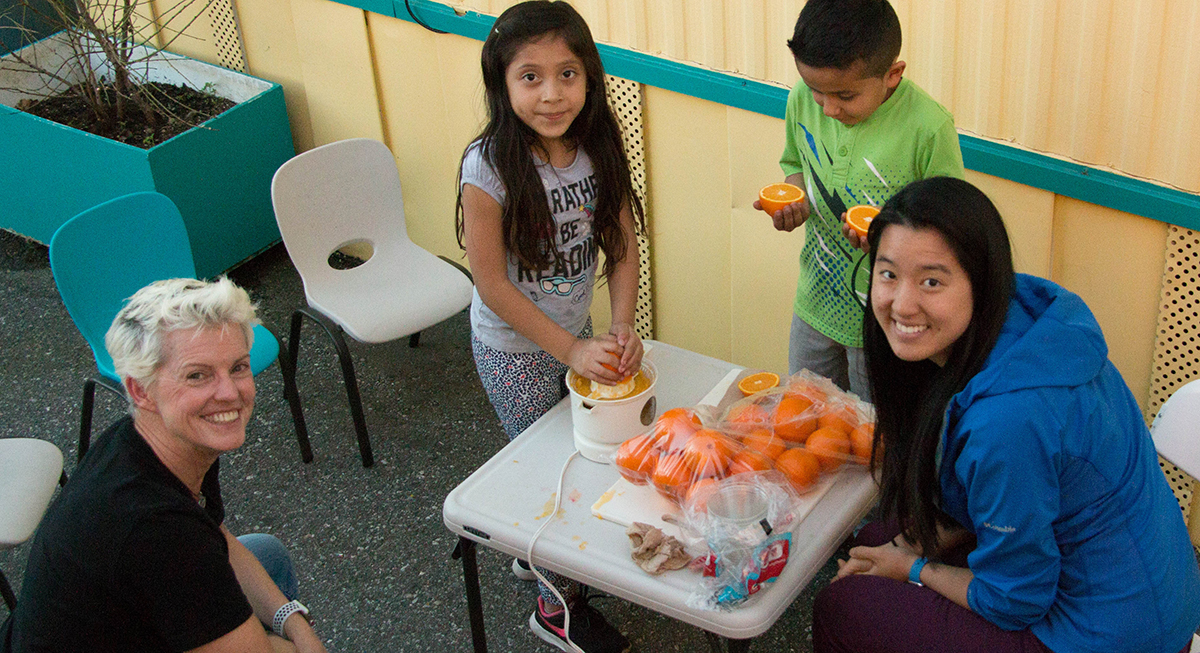
Bridging Palo Alto’s education gap
By Ezra Yoseph, ’21 (biology/neurobiology)Following years of negotiations between its previous owner and Santa Clara County, Buena Vista Mobile Park survives as one of the few remaining options for affordable housing in Palo Alto. Unfortunately, the 400+ residents continue to be stricken by the harsh ramifications of educational inequity. Noticing that there were several academic outreach programs offered to secondary students but a lack of programs servicing elementary school students, Dr. Deborah Farrington launched Buena Vista’s first homework club for younger children and enlisted Stanford University students as supporters and tutors.

My first quarter with the Buena Vista Homework Club (BVHC), through a Cardinal Course, Well-Being for Immigrant Children and Youth, instilled in me the importance of getting to know students and making time for conversation in between tutoring sessions. Understanding the backgrounds my students came from allowed me to come up with nuanced and effective goals for each meeting. Simply put, access to educational resources at home is far from uniform, which inevitably leads to an immense number of low-income students getting left behind very early on. As we look forward to mitigating Palo Alto’s education gap, we must sustain and promote programs like BVHC that support learning at a young age as opposed to waiting until it’s too late.
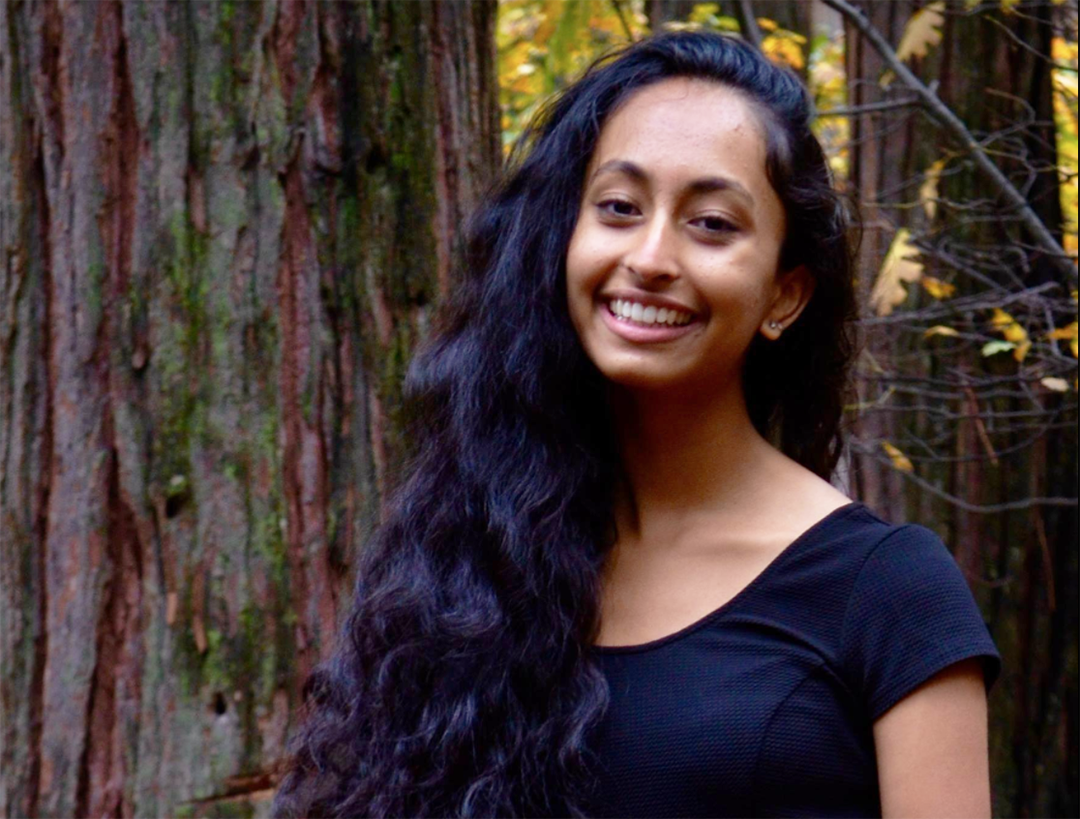
Technology aiding advocacy
By Mayuka Sarukkai, ’19 (Symbolic Systems)
The landlord won’t remove lead paint from the walls – which means health problems for the kids, which means frequent hospital visits, which means no time to work, which means we can’t pay rent, which means we’re being evicted. This is the story recounted by one woman over a housing hotline, but the vicious cycle of landlord abuse and displacement is a narrative shared by countless tenants who are facing the overwhelming reality of gentrification in New York City.
My summer fellowship at JustFix.nyc, a Brooklyn-based nonprofit creating technological tools to fight for housing justice, was a deep dive into this tangled world of housing in NYC. Over the course of nine weeks, I worked on building – from outreach to user research to design to deployment – a new online referral directory designed to provide targeted referrals to best-match legal service providers and community advocates for these tenants facing housing crises. This summer was the first time I truly felt I had access to an arsenal of tools and experiences to bridge real human stories and intentional product development, and to understand what it really means to work at the intersection of humans and computation to create a positive community impact.
Interested in spending a summer doing public service? Find out more about Cardinal Quarter.

No small task
 By Noah Garcia, M.A. ’15 (Public Policy)
By Noah Garcia, M.A. ’15 (Public Policy)
I hopped off a cozy rush hour “L” train and walked into the office at the city’s Civic Opera Building for the first time. Any hazy ideas I had about the work quickly came into sharp focus: Drafting written comments and reports. Liaising with other environmental organizations and utilities. And reading way too much email.
When I accepted my fellowship with the Natural Resources Defense Council (NRDC) in Chicago, I was excited and anxious about the fellowship’s broad clean energy scope. I felt that the classes I had taken in college had prepared me, at a high level, for work that lay ahead. But so much learning took place on the job.
Moving the needle on clean energy development in the Midwest is no small task. I feel proud to have worked on NRDC teams that drove bold renewable energy and energy efficiency legislation in Illinois. I feel proud to have helped spur electric vehicle adoption in Ohio through multi-party agreements to fund critical infrastructure. And I am in awe of what I have seen my colleagues accomplish. Through it all, Stanford has been the supportive platform I have used to explore these areas of interest in the environmental sphere.
Noah was a 2015 Schneider Fellow. Schneider Fellows work at leading U.S. nongovernmental organizations (NGOs) to tackle sustainable energy challenges.
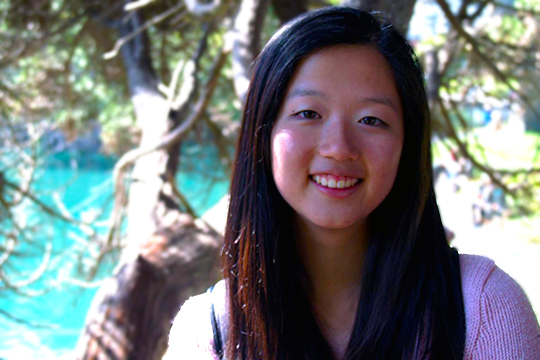
Wherever I was needed most
By Angela Li, ’17 (Biomedical Computation)
I first met Yvette* when I was assigned to be her interpreter during a routine appointment, and we talked for over an hour on our way out of the clinic. She opened up to me about her struggles with depression, and I listened as she shared her story: crippling loneliness as a recent immigrant, financial woes, an absent husband. We also connected over our shared love of Oaxaca, Mexico, her hometown, and at the end of our conversation, she was in better spirits, even a bit hopeful. As she thanked me profusely, I was delighted to see her genuinely smile for the first time that day.
As a Community Health Advocacy Fellow, I have had the privilege of getting to know people like Yvette while volunteering at MayView, a community health center that serves local low-income patients. During weekly shifts, I would help wherever I was needed most: as an interpreter, doing intake and vitals, or even comforting children as they were getting their blood drawn. In addition, I helped develop an online patient portal and customize it to the needs of MayView patients. This entailed not only applying the community health principles I had learned in the classroom, but also working with individual patients, teaching them how to use this tool and empowering them to proactively manage their health.
I look forward to caring and advocating for underserved patients in the future as a physician.
*Not her real name
